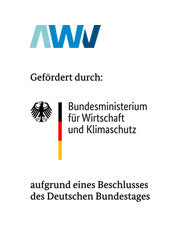In the 23 years of its existence, the CoR has significantly increased the influence of regional and local authorities in the EU. Re-gions are today established players in the EU system. What are the benefits for the regions and for the citizens of the EU? How could EU citizens‘ participation be enhanced?
Mr. Markkula: The EU has undergone its most serious crisis of confidence since its creation. Some would even say an “existential crisis“. Double-digit unemployment rates, globalisation, terrorist attacks, as well as refugee and immigration crises: all of this has generated diminished hopes for the future and fear within a majority of citizens. As a consequence citizens have lost faith in the Union‘s ability to address their most pressing problems, giving rise to an unprecedented surge of anti-EU populist parties in a large number of EU countries.
As the level of government closer to the citizens, I believe that we, representatives of local communities, have a duty to, first, hold the EU to account and, second, to articulate the added value of the EU in the day-to-day lives of our citizens.
We need to listen to our communities and build up solutions, focusing on what the EU has achieved and what the options are for the future. To do so, the Committee of the Regions has launched a wide-ranging citizens‘ consultation called “Reflecting on Europe“, mostly in the form of citizens‘ dialogues, town hall debates and discussions with other political bodies at local levels throughout Europe. Since March 2016 to the end of 2017 there have been – or will be – around 135 citizens‘ debates organised in
17 EU countries involving about 200 Committee‘s members and around 20 000 citizens. From Cork in the west of Ireland to Gabrovo in Bulgaria and from Athens to Poland, I have tried to set an example to my fellow CoR Members. This initiative will not remain a listening-only exercise: we will make sure that the reality, also with new proposals, from the ground is shared with “Brussels“.
Acceptance of the EU by the European citizens themselves depends on the successes made by better legislation. What do you think could be taken more into consideration during the process of lawmaking by EU institutions? How could superfluous regulatory burdens be dismantled? In what respect is the calculation of administrative costs of importance for the CoR?
Mr. Markkula: Our work on making EU regulation better, cutting red tape and simplifying the use of EU funds has seen successes so far. We have, for example, drawn attention to key areas where bottlenecks exist due to unclear definitions, overlapping or burdensome reporting obligations and high execution costs. Moreover, we are working with Commissioner Creţu on the implementation of structural funds at local and regional level through the Expert Group on Simplification. But, better regulation means nothing if it is simply a talking point in the EU institutions. It must be translated into concrete actions and improvements on the ground across the EU‘s regions and municipalities.
Simplification of legislation and cutting red tape are recurring requests of the CoR, precisely because regions and cities are the first beneficiaries and implementers of many EU policies, such as innovation, transports, research, energy, climate adaptation, etc. This is for instance one of our major requests for the future EU cohesion policy after 2020 – another official opinion prepared by Michael Schneider.
For me personally, better regulation is not simply about having less legislation at the EU level. It is about getting it at the right level, where the intended objectives can be best achieved. And a connected Europe must be at the very core of our objectives: it’s about connecting people, ideas and resources across Europe. This was the objective of our Bratislava Summit in July last year, which became the flagship event of my mandate not the least due to the support of our Slovak members and friends.
Good – or better – EU regulation is an issue for all levels of government. In order to achieve this, we have repeatedly been calling for broad consultations of stakeholders and citizens at the earliest stage of EU law making, as well as impact assessments throughout the legislative cycle, including territorial impact assessments.
Zurück zu Seite 1 | Seite 2 | Weiter zu Seite 3 | Weiter zu Seite 4

